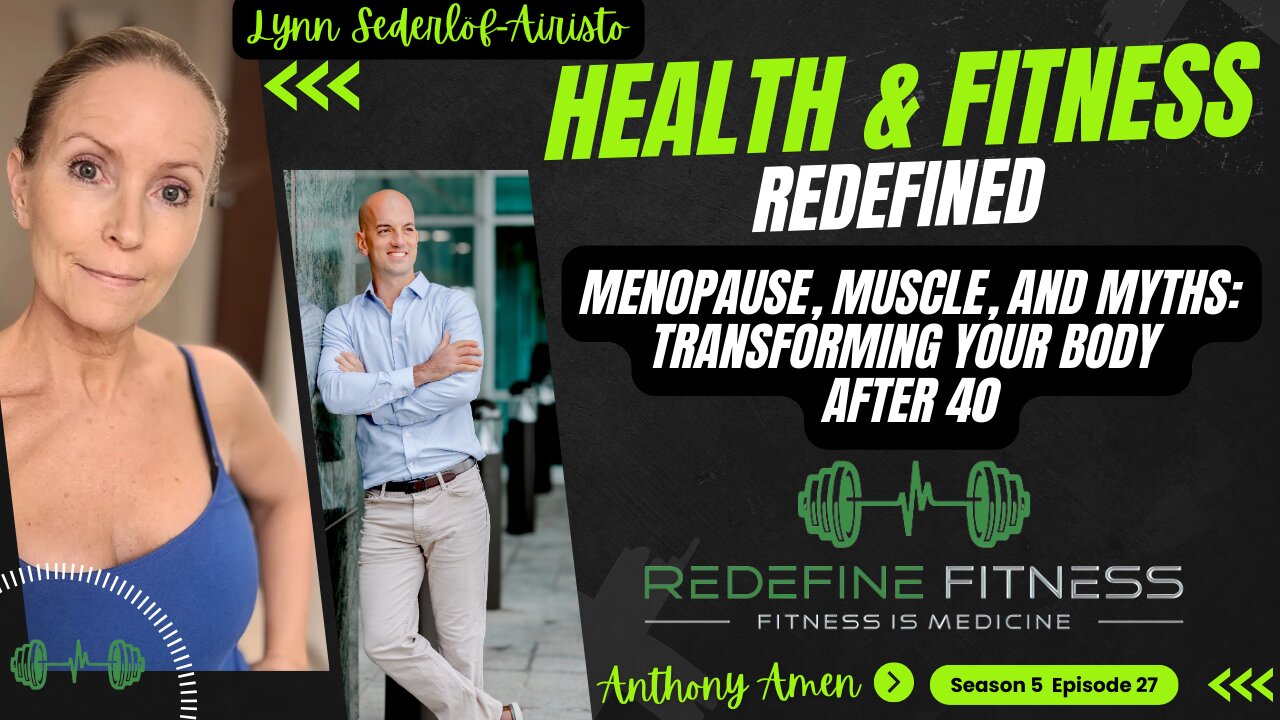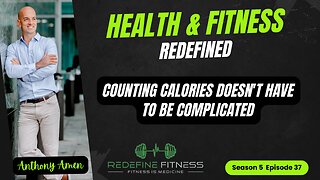Premium Only Content

Menopause, Muscle, and Myths: Transforming Your Body After 40
The hormonal shift of menopause fundamentally transforms a woman's body in ways that extend far beyond hot flashes and mood swings. As estrogen levels decline, women face accelerated bone density loss, diminished muscle mass, and metabolic changes that can dramatically impact quality of life—unless they understand how to counteract these effects.
Lynn, a 54-year-old biochemistry major turned fitness expert, shares her personal journey of watching her body change dramatically at age 49 despite maintaining her regular exercise routine. This transformation led her to discover that traditional fitness approaches that work wonderfully through our 30s and early 40s become dramatically less effective after menopause begins. Body pump classes, cardio sessions, and lightweight, high-repetition exercises simply don't provide the stimulus needed when estrogen no longer supports muscle maintenance.
The solution lies in proper strength training with progressive overload—systematically increasing weight over time to continue challenging muscles. Lynn explains that this approach should become as non-negotiable as brushing teeth for women in midlife, not for aesthetic reasons alone but because it serves as medicine against age-related decline. In the five years surrounding menopause, bone density loss accelerates tenfold, making strength training an essential intervention against fracture risk and functional decline.
The conversation tackles persistent myths that prevent women from embracing weights, particularly fears of "bulking up" that simply don't reflect reality for most women. It also addresses nutrition needs, especially protein requirements that increase with age, and critically examines the recent trend of GLP-1 medications for weight loss. While these drugs may create a smaller body, they don't address underlying habits and potentially accelerate muscle loss at a time when preserving muscle becomes increasingly crucial.
Most encouragingly, Lynn emphasizes that effective strength training requires far less time than many imagine—just twice weekly with a well-designed program provides tremendous benefits. For women feeling overwhelmed by fitness information, this message offers both clarity and hope: strength training serves as powerful medicine against the challenges of aging, requiring minimal time while delivering maximum impact on quality of life.
Ready to transform your approach to fitness after 40? Visit befitafter40.com to discover simple, effective strength training methods designed specifically for women navigating the changes of midlife.
-
 36:03
36:03
The Anthony Amen Show
2 months agoCounting Calories Doesn't Have To Be Complicated
571 -
 0:43
0:43
Gaming on Rumble
3 hours ago $2.02 earnedLvl UP (Raids)
17.9K -

SpartakusLIVE
7 hours agoBUYBACKS Have RETURNED || #1 Gamer w/ Most HEALTHY and VIBRANT Hairline
24.1K -
 2:13:41
2:13:41
TimcastIRL
6 hours agoCNN SLAMMED For Claiming BLACK J6 Bomb Suspect IS A WHITE MAN w/ Milo & George Santos | Timcast IRL
234K323 -
 4:29:59
4:29:59
SynthTrax & DJ Cheezus Livestreams
1 day agoFriday Night Synthwave 80s 90s Electronica and more DJ MIX Livestream CHROMIUM Edition
18.3K4 -
 LIVE
LIVE
GritsGG
14 hours agoBO7 Warzone Is Here! Win Streaking! New Leaderboard?
304 watching -
 3:53:07
3:53:07
VapinGamers
5 hours ago $1.63 earnedDestiny 2 - Star Wars Renegade Lightsabers Oh My! - !rumbot !music
16.8K1 -
 2:13:17
2:13:17
TheSaltyCracker
6 hours agoPipe Bomb Bull Sh*t ReeEEStream 12-05-25
96.6K208 -

DannyStreams
4 hours agoBF the WZ
7.42K -
 LIVE
LIVE
Finfante
5 hours ago $0.24 earned*Interactive Stream* Something is WRONG. (Dane Jonson). | LIVE INDIE HORROR NIGHT
59 watching